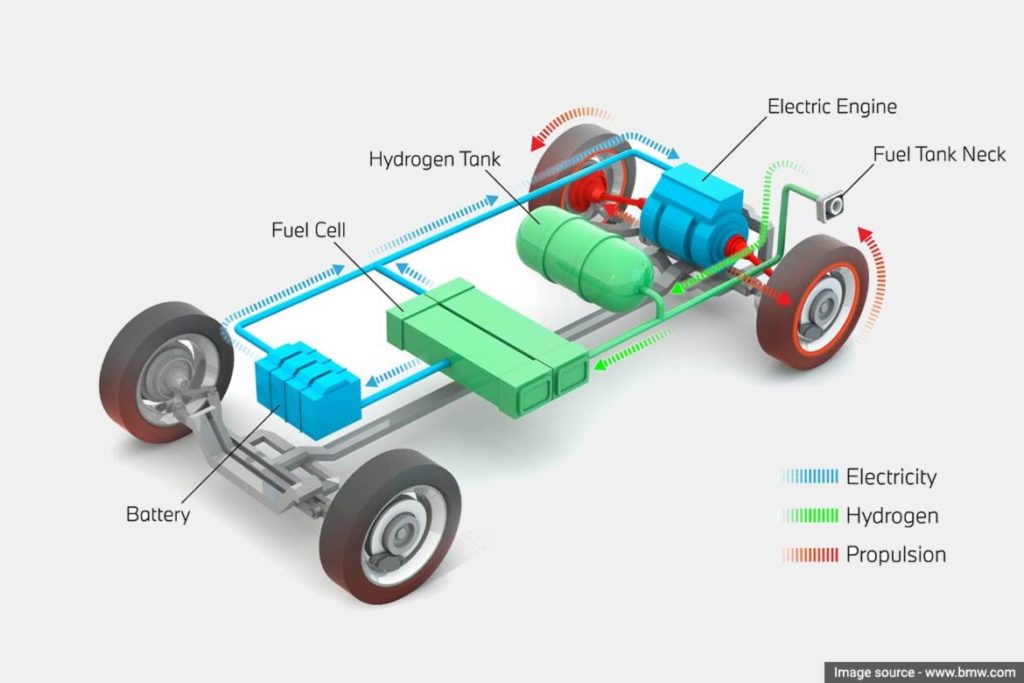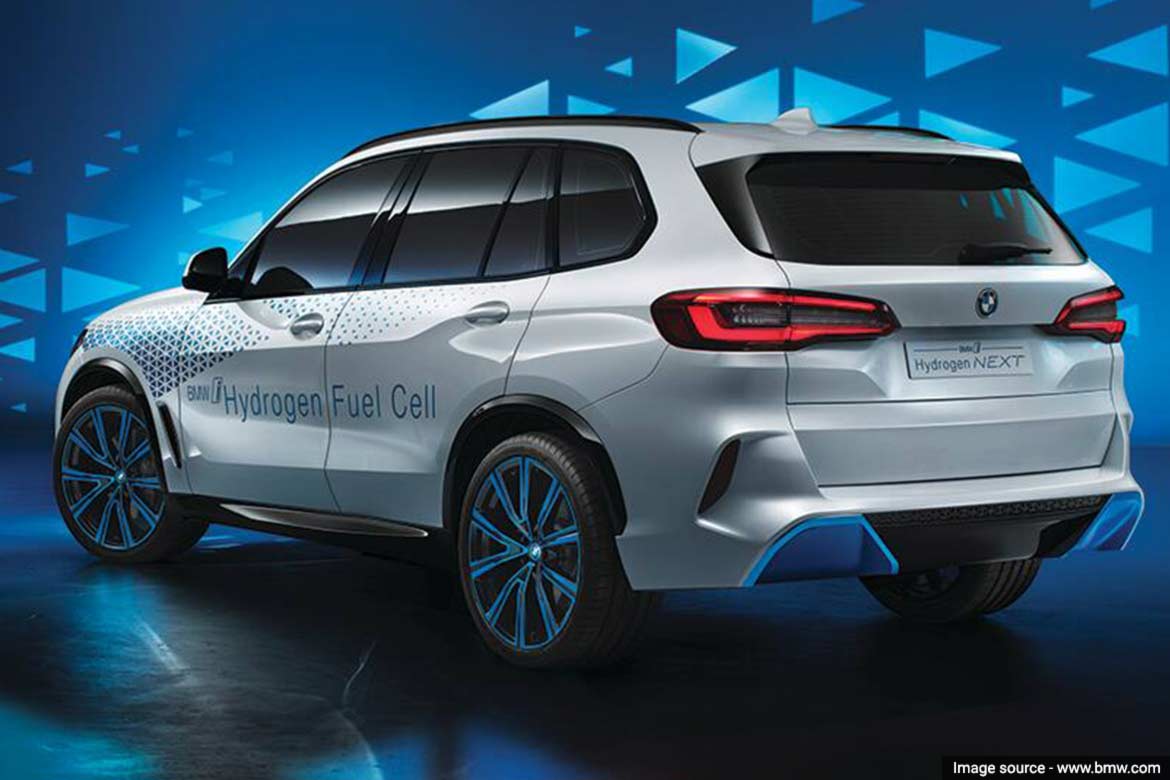Depleting fossil fuel reserves and increasing global emissions has forced mankind to switch to cleaner energy. To make the earth a cooler planet world have started adopting clean-energy based vehicles. One such promising and cutting edge technology is Hydrogen Fuel Cell.
Fuel cell vehicles have the potential to change the face of mobility in future. Today, in this article we will know about FCVs.
What is a Hydrogen Fuel Cell?
Hydrogen Fuel Cell is a device that produces electricity by an electrochemical process using hydrogen as a fuel source and an oxidizer. The fuel cell combines hydrogen and oxygen to produce an electric current and water is released as a byproduct in the process.
Hydrogen fuel cells convert chemical energy into electrical energy like conventional batteries, but FCEV is sustainable in the long run
Types of electric vehicles
EVs can be broadly classified under 3 categories.
- Battery Electric Vehicles (BEV): These vehicles are powered by a fully rechargeable battery. Generated electrical energy.
- Hybrid Electric Vehicle (HEV): These conventional vehicles use an internal combustion engine as well as an electric propulsion system. In this type of hybrid engine, the battery keeps on charging while the IC-Engine is working. Thus, the vehicle saves fuel.
- Plug-in Hybrid Electric Vehicles (PHEV): These vehicles are similar to HEVs, the only difference is that the battery is charged from an external source or plug point. FCEVs are the beginning of a new generation qin electric vehicle technology. Under it to drive the electric motor Hydrogen is used.

Read more: How India Is Connecting Dots To Shape The Electric Mobility?
Difference between FCVs and conventional vehicles
Although the fuel cell also converts chemical energy into electrical energy like an ordinary battery, it does not store energy.
On the contrary, it is like an internal combustion engine or IC Engine. The only difference is that conventional IC engines run on conventional fuels, whereas, FCVs are dependent on the supply of hydrogen and oxygen.
However, in contrast, unlike an internal combustion engine, there is no movable part inside the fuel cell and no internal combustion takes place in it. This makes it more efficient and reliable than the traditional IC-Engine.
Although FCEVs are considered to be electric vehicles, the process of refuelling is the same as for conventional cars and trucks. Notably, their range is as good as conventional vehicles.
The availability of essential elements for the formation of hydrogen is also in sufficient quantity. Further development of hydrogen technology will help in making these vehicles cheaper, cleaner and better options.
What are the advantages?
Unlike traditional combustion-based technology, they emit very few greenhouse gases. Hydrogen used in fuel cells produces heat and water as a by-product and is more efficient than a traditional combustion engine.
Unlike other battery-powered vehicles, FCEVs do not require any charging point but will be fuelled with hydrogen as fuel and can cover a distance of 300 kms once the tank is full.
Some gaps needed to be plugged:
Although FCEVs do not emit any gas that causes global warming, fossil fuels are used in the manufacture of hydrogen, which will indirectly increase the emission of greenhouse money.
Besides, from the safety point of view, many questions arise about hydrogen as it is extremely flammable and due to this there is a possibility of explosion.
In addition, the cost of hydrogen based vehicles will be much higher than the cost of conventional vehicles and the new fuel infrastructure will be required.
Moreover, the Governments around the world are promoting battery based electric vehicles.
Read more: Why Electric cars are the Future of Transport?

